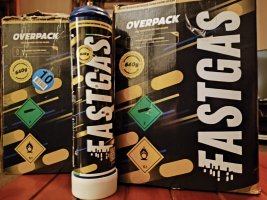Update.
Either Lidl has different prices at different branches, which is unlikely, or I remembered the price wrong the first time round. I went to another Lidl yesterday and they were £3.99

Price optimisation is a thing.
Y'know how petrol stations change their prices in tenths of a penny? That's a sophisticated software algorithm* that takes into account not just how much the petrol/diesel costs them plus their overheads plus a set profit margin, but also takes other things into account.
Basically, the algorithm calculates the tipping point, down to the nearest tenth of a penny, at which it calculates the price will attract the customer or send it to a competitor. It takes into account how much the nearest petrol stations are charging, but also amenities, like does the petrol station have a store attached (customers more likely to fill up here if they also need a loaf of bread or packet of cigs), is that convenience store 'independent' or part of a chain, eg Tesco, M&S, Co-op, etc. Does it have a car wash or tyre pumps/air pressure gauge.
And all that data gets input and it figures out what's the maximum it can charge without deterring lots of customers and sending them to a competitor.
Price optimisation software was developed for petrol stations, but guess what? Some petrol stations are owned by big supermarket chains, who quickly cottoned on to the benefits for their retail arms.
So, yes, supermarkets can and do charge different amounts. You might not notice so much if you shop at Lidl, but if you shop in a big Tesco supermarket versus a Tesco Express, or a big Sainsbury's versus one of their smaller convenience stores, you'll usually be able to notice a difference.
I suppose some things might be set prices, if they've got promotions where they've published prices, but they've got thousands of products. And the supermarkets are constantly checking one another's prices and doing a comparison of a basket of goods.
There are a few products that people tend to track the prices of, often in their heads, so it's not an exact science, such as milk, bananas, loaf of bread, tin of baked beans, etc. Supermarkets know which products are the price sensitive ones, hence they're often 'loss leaders'. They know that if they can convince you that they're the cheapest store by making half a dozen to a dozen products the cheapest, you will assume they're the cheapest overall, and they can recoup the difference and make more profit on the other stuff you put in your trolley.
I don't know about Lidl pricing specifically, I don't know if they do or don't use price optimisation software and I don't know if they have different prices in different stores, depending on the size and location of their store, who and where their nearest competitors are, but when you say it's 'unlikely' it's not unlikely in the sense of not possible, it's entirely likely in the sense it's possible, although I don't know if they do practice price optimisation, but most if not all of their competitors will do, so it would be weird if they didn't.
*I had a job interview years ago for an admin role for the company that developed it.







 I just got over €250 of nitrous for €20... Bonus!
I just got over €250 of nitrous for €20... Bonus! 